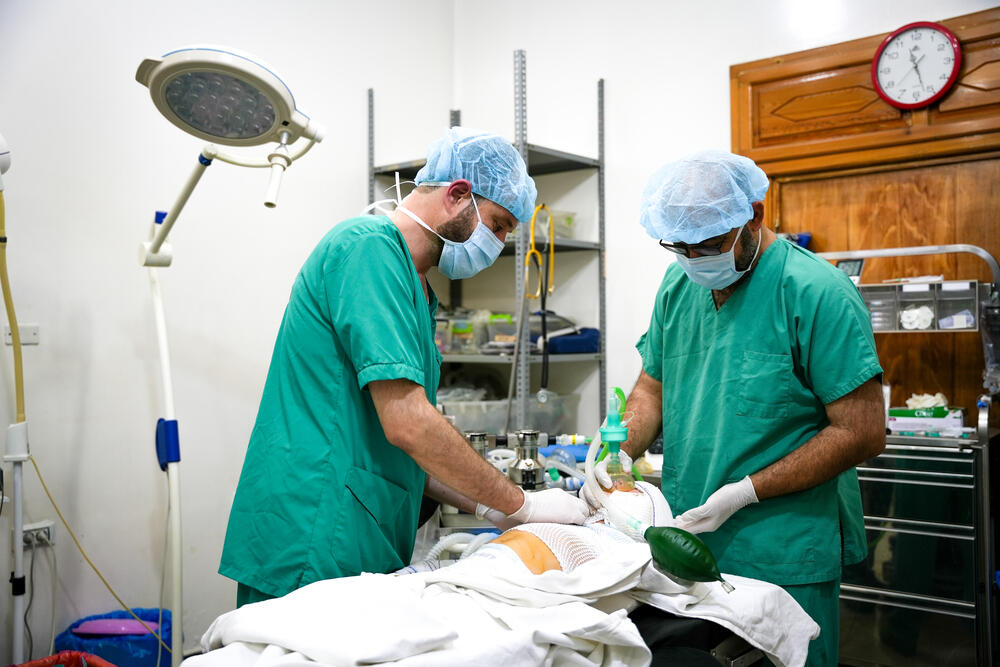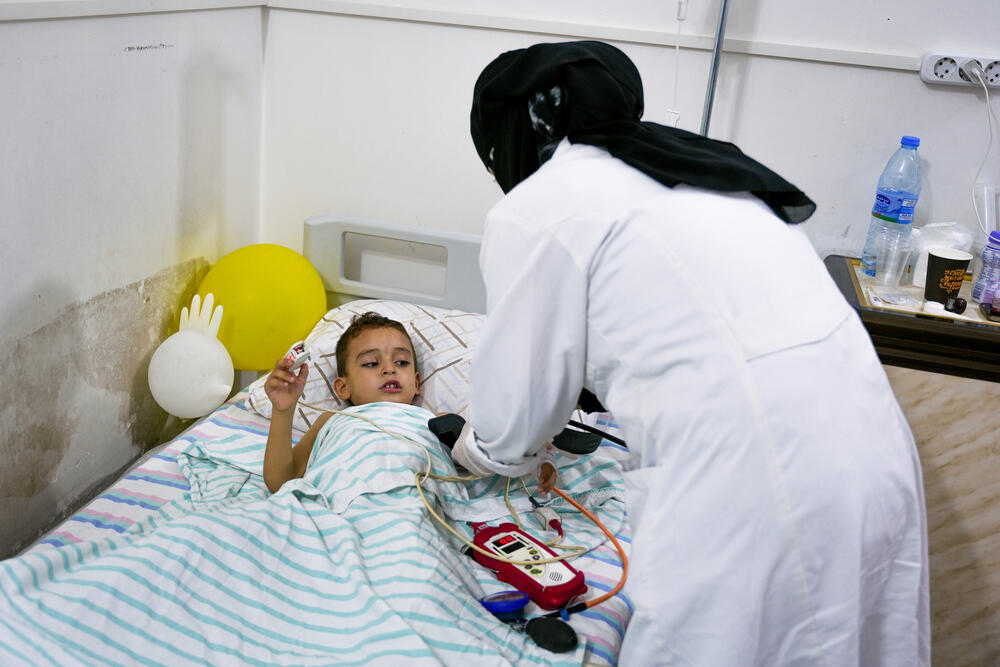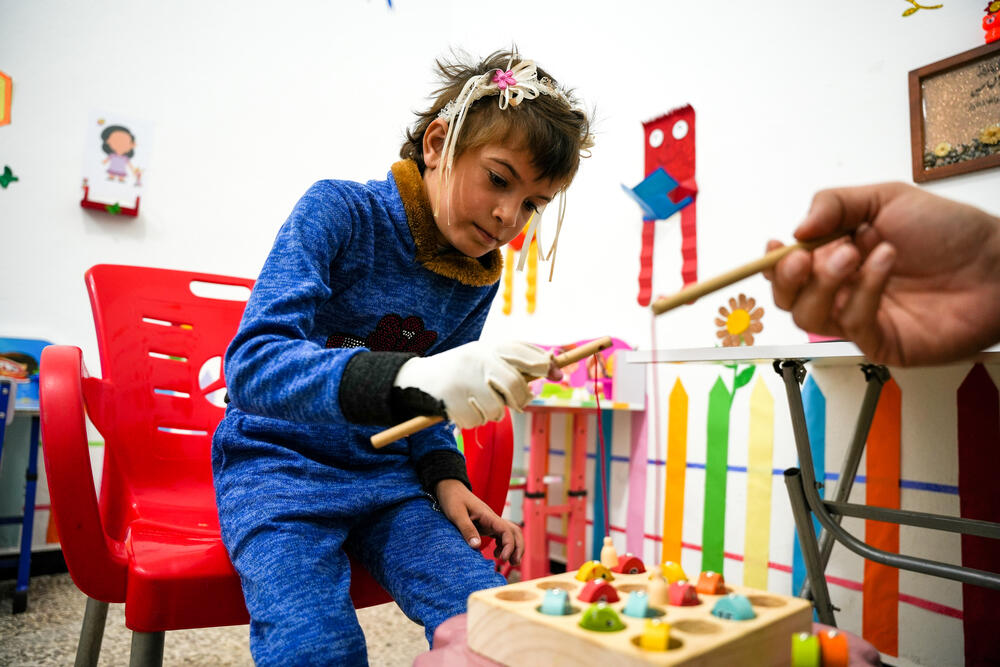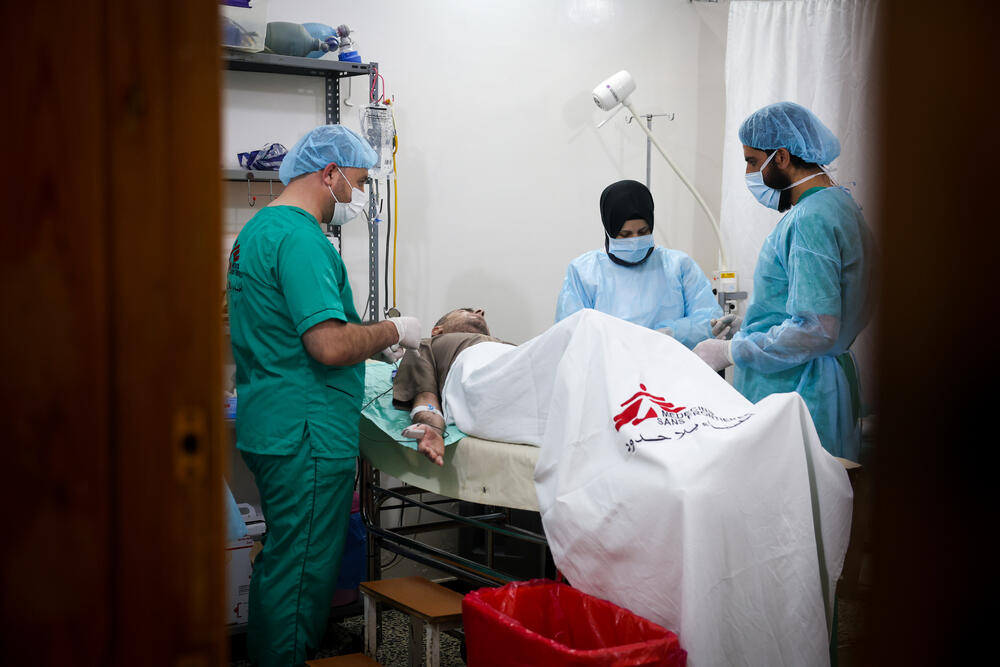11 years of war through a Syrian MSF Hospital
20 December 2023
“We are alone in this huge community, to take care of people suffering from burns”
In 2012, a year after war broke out in Syria, Doctors Without Borders/Médecins Sans Frontières (MSF) opened a burn care unit in Atmeh, in northwestern Syria’s Idlib province. It is currently the only facility treating burn patients in northwestern Syria—home to more than more than 4.5 million people, most of whom are displaced.
In 2015, Abdulbari was 12 years old. The war in Syria had lasted for four years. That year, his life changed when a missile hit the disused hospital where he was sheltering with his family, in the western countryside of Idlib. Despite the complexity of his condition and the need to transfer him to Turkey, our health staff worked to save his life. His primary treatment lasted for more than two years, during which he experienced pain and loss. He is continuing the journey of reconstructing his life with the support of his family and MSF team. Abdulbari's story is the same as many Syrian children victims of war:
Abdel Malik, Araour, MSF nurse supervisor, has worked at the clinic since it opened. Dr. Moheeb recently joined the team to develop the reconstructive surgery program. Here, they address what they have been able to achieve at the clinic, the huge gaps that remain in the health care system, and the unacceptable living conditions that several million people endured for years.
Following Dr. Moheeb around the inpatient department (IPD) is not an easy task. He is constantly on the move with so many patients to see, most of whom are young children, with severe burns. He asks each patient or their relatives: “What happened to you? How did you get burnt? Where are you from? Are you living in a house or in a camp?” He then explains the medical procedures, so that the patients and their caretakers can understand the treatment—as he used to when he was a professor at Aleppo University, before the war.
“Here in the region, for ten years there had been no electricity network,” said Dr. Moheeb. “It only came back a year ago, in and out. Many children don’t know about electricity. This is one of the reasons why they easily get burnt by it.” But according to Dr. Moheeb, the major problem is bad fuel. “This cheap fuel that we have is actually pure fuel. It contains a lot of gas and [explodes] easily. This is how most women and children get burnt. We need more to [spread] awareness to people.”
Families are larger now than they were before the war. Most people are living in tents or other makeshift shelters. Children are home most of the time as there is no school. Many children are agitated because of compounding trauma for years, most recently triggered by the earthquakes in February 2023 that killed and displaced thousands of people in Syria and Turkey. MSF’s teams see that domestic accidents are the main cause of burns, and most of these accidents happen to children, either who are burned by spilled boiling water or by heating system explosions.
These injuries are directly linked to the poor living conditions as a result of more than 12 years of war. The risk of burns is even greater in tents as they are highly flammable and because of the number of people living in a small space. If that happens, often the whole family suffers burns, and six or seven patients arrive at the hospital for treatment at once.
MSF and other NGOs are conducting fire risk awareness sessions in refugee camps in the region. But two million people live across 1,532 camps and informal settlements in northwest Syria—so our teams cannot reach everyone. And while raising awareness can prevent some accidents, it does not improve the dangerous living conditions. “We need to advocate for the authorities to understand the problem and buy better quality of fuel,” says doctor Moheeb. But this would be difficult to achieve as the cheap fuel comes from northeastern Syria, where there are no proper refineries. Better quality fuel is expensive and is imported from abroad, which under the current economic circumstances is not accessible to most inhabitants of northwest Syria.
Funding for northwest Syria is decreasing after a temporary increase linked to the earthquake, so there is little hope for improving fuel quality and living condition while this trend continues.
These are some key figures on the activity of the Burn Unit over the years:
- Between August 2016 and November 2023: MSF Atmeh Burn Unit has treated 37 413 patients and provided 11 684 surgeries.
- In 2022: the number of surgeries was 1 430
- In 2023 (until the end of November): the number of surgeries was 2 044
- Surgeries for children under 5 years old were more 40% of the total number of surgeries in 2022 and 2023
- Reconstructive surgery has resumed in Atmeh in 2022 (14 surgeries) and increased in 2023 (up to 83 so far)




